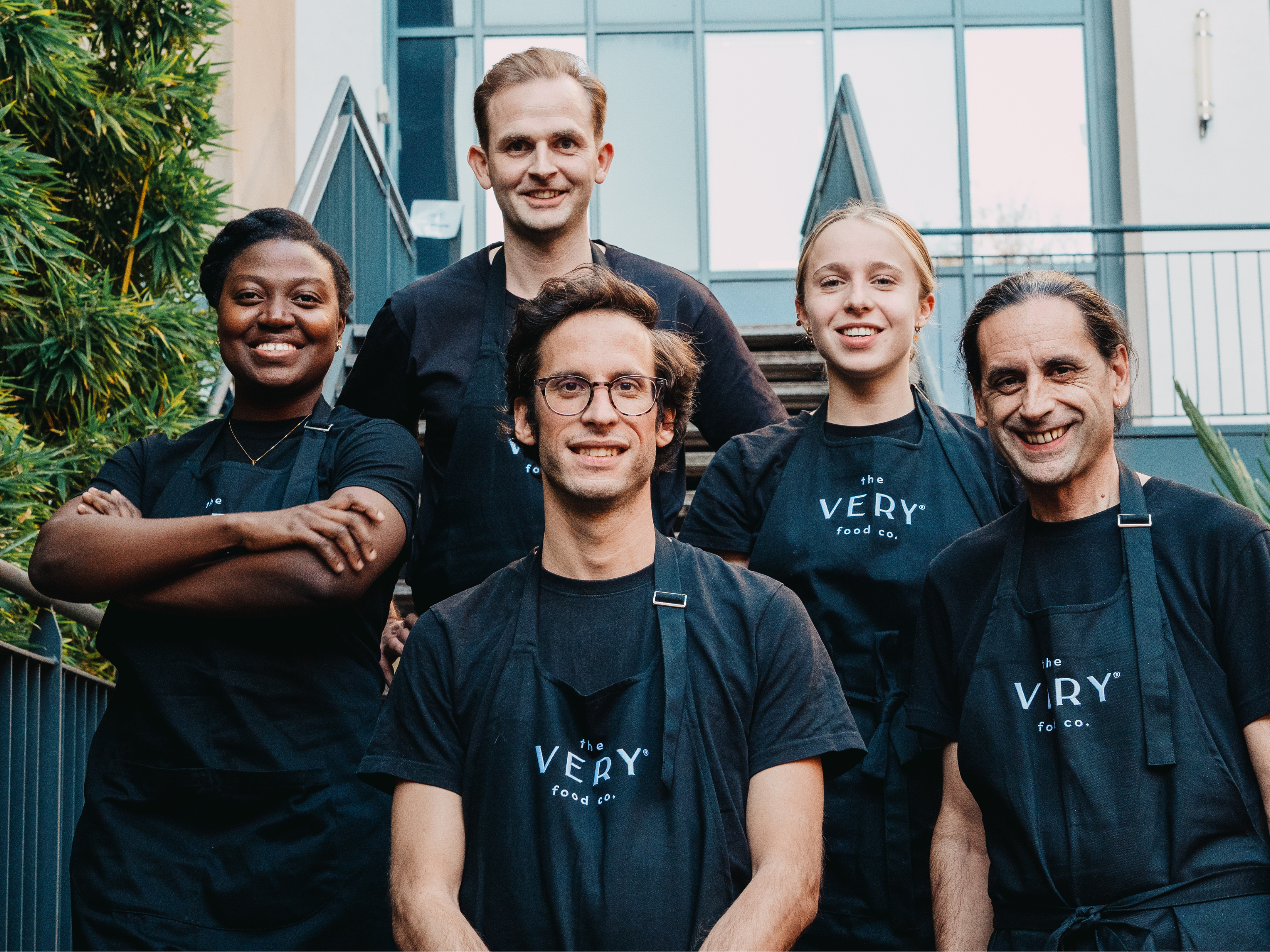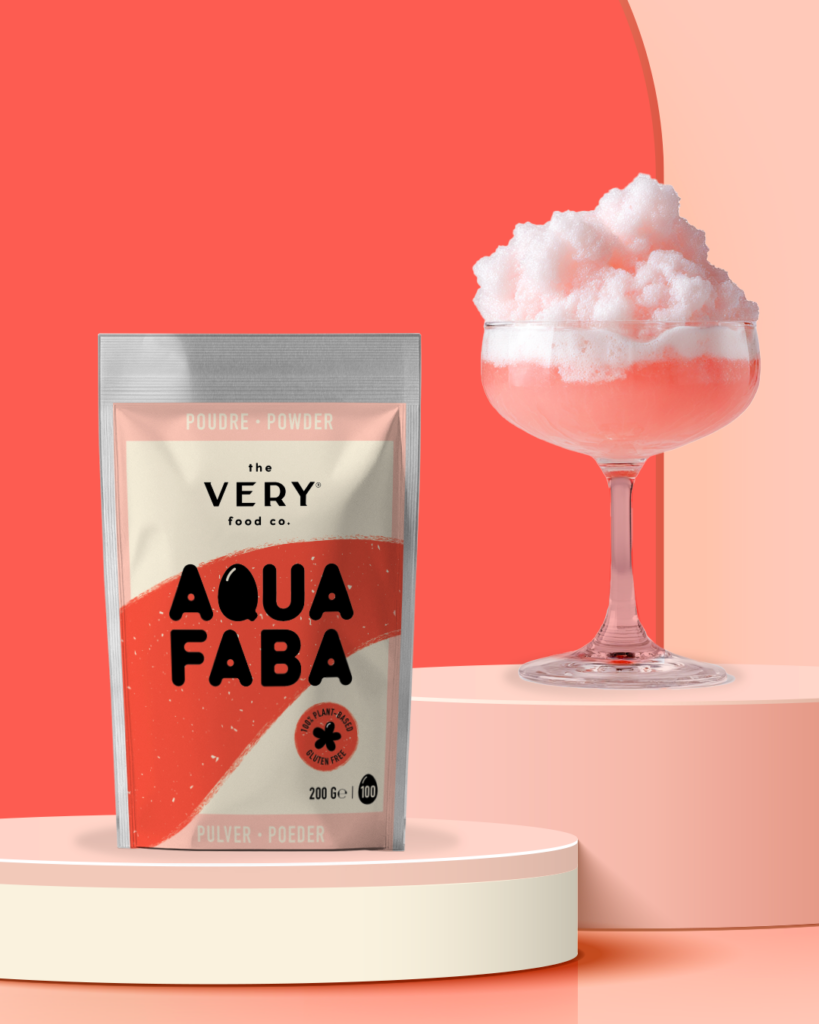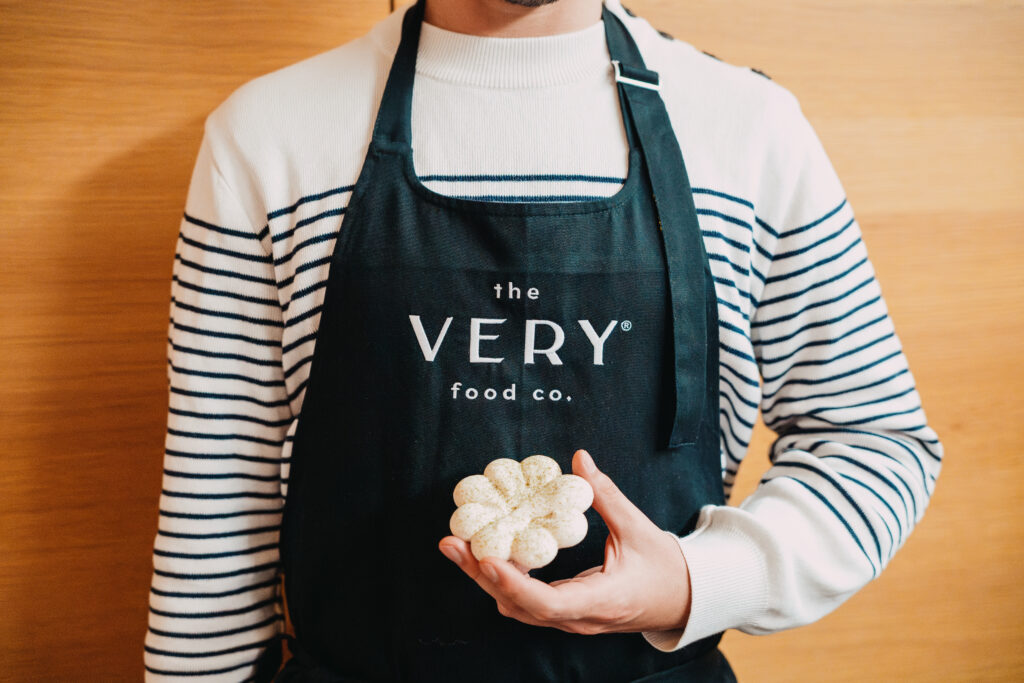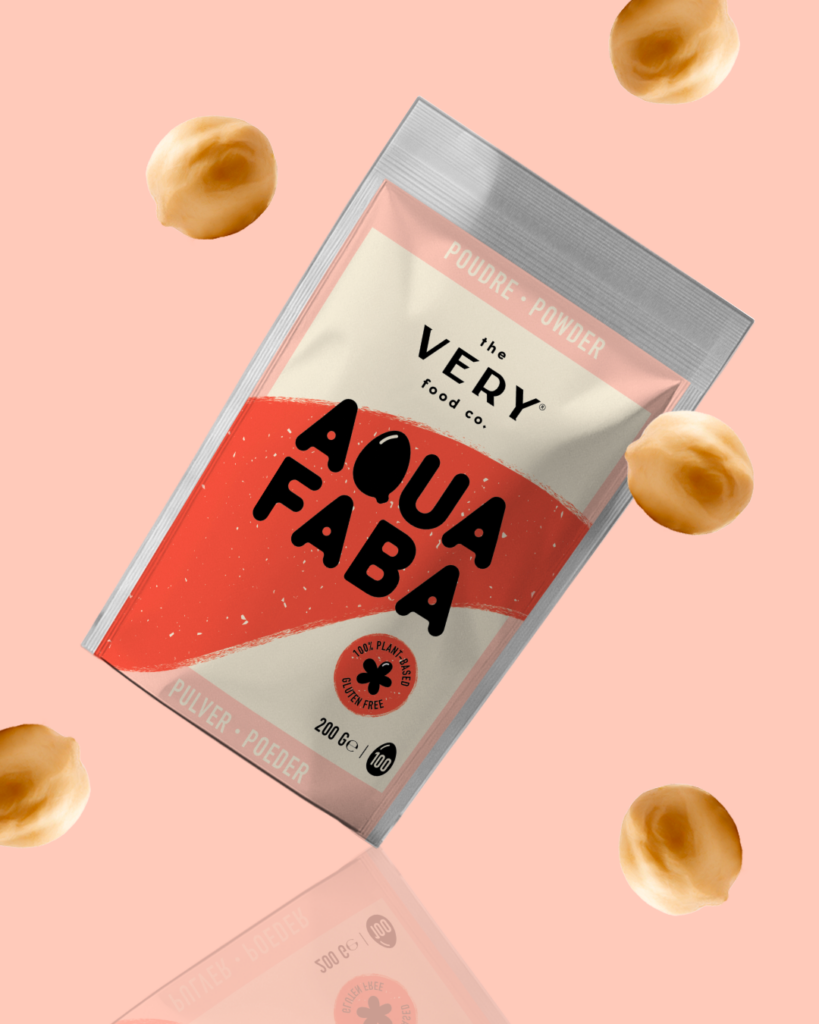
As food innovators respond to soaring egg prices with replacers ranging from yeast to pea protein, one French startup is betting on chickpea water – but in a new format.
For some years now, aquafaba has been the go-to egg white substitute for home bakers making meringues and bartenders mixing up a whiskey sour.
The ingredient – the leftover liquid from cooking beans – gave chickpeas a new purpose, birthing everything from dedicated cookbooks to startups selling the liquid by itself.
Despite its magical abilities, though, there have been questions over whether we really need companies to sell chickpea water when consumers can just buy cans of the beans for a fraction of the price at the supermarket, getting two ingredients for the price of one.
With avian flu pushing egg prices to record-highs, there’s a new market opening up for aquafaba, one that’s beyond the home kitchen. Professional bakeries and the CPG food manufacturing industry are both in dire need of egg white alternatives that offer the same emulsification, foamability, and whippability.
“When we first asked chefs how they replaced egg whites, many smiled and pointed to chickpea cans. They used the cooking water, aquafaba, because it foamed and bound just like egg whites. A clever hack, but not sustainable if we wanted to make this alternative accessible at scale,” says Arnaud Delacour, co-founder and CEO of The Very Food Co, which has turned the “kitchen trick into a clean-label, ready-to-use product with consistent functionality”.
Its liquid version is already in use in eight countries, including France, Canada, Australia and Germany. “But when we moved into bakeries and industrial manufacturing, we hit a wall: liquid didn’t fit their processes. At first, we thought it was only about size – one-litre packs were too small. But the real insight was that many professionals can only work with powders,” he explains.
That led the French startup to develop its newest solution, a Very Aquafaba Powder that is stable, lightweight, and easy to dose in industrial lines. “Together, the two formats make aquafaba truly universal, from chefs’ kitchens to large-scale production,” Delacour says.
How The Very Food Co makes its aquafaba powder

To make its liquid version, The Very Food Co starts by cooking dry chickpeas much like you would at home, except on an industrial scale and under controlled conditions, to ensure consistent functionality each time.
“We then concentrate it by reducing the water content, and finally dry it into a fine, soluble powder that can be rehydrated and used just like egg whites in foams, mousses, or bakery applications,” says Delacour, who founded the startup in 2022 with CSO and CTO Oscar Castellani.
“We work with European-grown chickpeas. In our process, only the cooking water – where the functional proteins and soluble fibres are released – becomes aquafaba. The chickpeas themselves don’t go to waste: they are fully valorised, most commonly into food products like hummus, flours, or purées.
“This circular approach means that nothing is discarded, and every part of the raw material is put to good use. It’s a core part of our sustainability story: creating value from what was once overlooked, while ensuring no food is wasted.”
So how does the powder differ from conventional aquafaba from a chickpea can? Delacour suggests that the powder builds on its liquid’s success by offering a different set of advantages.
“It’s much more concentrated, so chefs and manufacturers can dose it precisely depending on the recipe, and it’s shelf-stable at room temperature, even after opening. It also lets you store and transport far more ‘egg equivalent’ in a much smaller footprint. Rehydrated, it delivers the same foaming, binding, and emulsifying properties as liquid – just in a format that fits better into industrial processes,” he says.
TLDR? “Liquid aquafaba made the ingredient accessible, and powdered aquafaba makes it universal, from artisan bakers to large-scale manufacturing,” the CEO highlights.

A clean-label, easy-to-understand egg replacer
We’re talking aquafaba at a time when the global egg supply chain has been wrecked by bird flu. Prices have never been high in some countries, though the demand has sharply increased. At the same time, anticipated price corrections have led some producers of powdered eggs to delay purchases, exacerbating the supply gap.
“Egg whites are a commodity, one of the most optimised ingredients in the world. Decades of industrial farming have driven costs down to the bare minimum. Aquafaba, by contrast, is a specialty ingredient, and the economics are very different. We’re building a new category from the ground up, so by definition, costs are higher today,” Delacour explains.
He argues that the Very Aquafaba products go “far beyond cost per kg”, offering a clean-label, allergen-free alternative with a transparent and simplified value chain. “You don’t rely on animal farming or volatile commodity markets, and you can make products that are lower in calories, easier to label, and safer for consumers with dietary restrictions,” he says.
The company produces its aquafaba in an industrial site in Europe. “Our process is designed to scale efficiently, which means we can ramp up quickly as demand grows. From 2026 onwards, we will have the capacity to produce around 100 tonnes of powder per year, with clear potential to expand well beyond that,” notes Delacour.
The Very Food Co is among several startups that have come out with functional vegan egg replacers for B2B applications recently, including Revyve (which uses yeast protein) and Meala (pea protein), which are upgrades to first-generation egg substitutes. How does its chickpea-based alternative fare?

“The first point of difference is the clean-label appeal. On an ingredient list, aquafaba is simply ‘water, chickpeas’ – that’s it. Compare that with many egg replacers today, which rely on gums, starches, microalgae extracts, or protein isolates from peas or potatoes. These can work functionally, but they often look technical or artificial to the average consumer. Aquafaba, by contrast, is simple, familiar, and easy to understand,” he says.
“Functionally, it’s one of the most studied egg white alternatives in the world. Food enthusiasts already know the trick: open a can of chickpeas and use the liquid as a natural egg white replacer. It foams, binds, and emulsifies, and it has been proven in countless recipes, from meringues to mousses. Beyond foaming, it even acts as a partial whole-egg replacer thanks to its natural binding properties.”
He adds that The Very Food Co isn’t inventing a new ingredient. Instead, it’s industrialising one that people already know works: “We make it reliable, consistent, and available to manufacturers worldwide.”
Why it’s all about B2B for The Very Food Co
The liquid aquafaba made by the startup is already being used in restaurants and cocktail bars globally. “In pastry, chefs rely on the liquid version to create allergen-free desserts such as mousses, meringues, pavlova, etc. In mixology, bartenders prefer it over egg whites for cocktails like sours, where it delivers the same texture without the allergen concerns,” says Delacour.
“One of my favourite experiences so far has been at the Hôtel du Palais Royal in Paris, where chef Maxime Raab uses Very Aquafaba in desserts while the bar team incorporates it into cocktails. Seeing the same ingredient bring together both kitchen and bar for pairing dinners is exactly the kind of versatility that makes aquafaba so exciting.”
The startup’s primary target market for the aquafaba powder is France. It’s already in talks with manufacturers here – until now, many of those discussions have centred on its other innovations, like Very Tourage (a butter alternative), which Delacour believes has helped the brand build a strong, credible platform to introduce Very Aquafaba Powder.
“We will begin sampling in October, so while we don’t yet have ongoing projects with manufacturers specifically on the powder, we know the interest is there. Compared to when we started, the difference is striking: people now listen and are eager to see what we can bring,” he says.

Could we see the powder make it onto supermarket shelves? “It’s hard to say at this stage. We know there are initiatives in the B2C segment for egg replacers, but for us, the real opportunity is an ingredient play. Egg replacement is fundamentally about functionality, and our strength is making that functionality available to professionals and manufacturers at scale,” explains Delacour.
“Of course, there could be opportunities in retail, but rather than building our own consumer brand, we see more value in supplying retail brands or co-developing products with them. Going B2C would require heavy marketing investments and a very different focus, whereas our priority is to be the best possible ingredient partner.”
So far, the startup has raised around €1M ($1.2M) in funding. “At this stage, our priority is not fundraising but turning our products into a commercial success,” says Delacour. “We may consider raising again in 2026 to accelerate growth, but right now the focus is on execution and building the business.”
Can its Very Aquafaba whip up an alt-egg revolution?
The post Exclusive: Is Aquafaba Powder the Silver Bullet to Solve the Egg Crisis? appeared first on Green Queen.
This post was originally published on Green Queen.